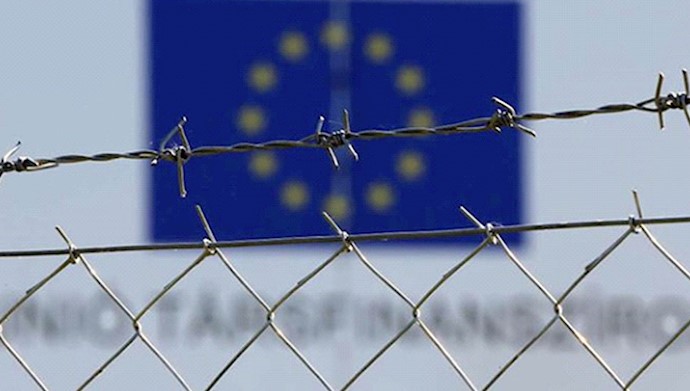Analysis by PMOI/MEK
Jan. 24, 2019 – A set of rules and guidelines that are supposed to improve Iran’s global financial status have in effect become a point of contention between different Iranian authorities.
On January 20, the Iranian regime’s parliament reiterated its previous bill about CFT (combatting the financing of terrorism) and made minor amendments to the 22 problems that the Guardian Council had raised. The parliament subsequently sent the bill to the Expediency Council for final approval.
Iran’s membership in the Financial Action Task Force (FATF), the de facto international anti-money laundering body, is currently suspended. The regime has one more month to pass the four necessary bills that will make it conformant to international norms and standards in terms of financial transparency.
The Expediency Council, in turn, didn’t find a straightforward solution and referred the bill to specialized commissions.
The Guardian Council is a body of 12 clerics that is supposed to make sure legislations passed by the parliament are in line with the Iranian regime’s so-called “Islamic values.” The Expediency Council is another body tasked with resolving conflicts between the parliament and the Guardian Council. The hot-potato handling of the anti-money laundering and terrorist financing rules by different Iranian regime institutions has been ongoing for months.
In contrast to his positive stance about the nuclear talks and JCPOA from the early stages, the Iranian regime’s supreme leader Ali Khamenei hasn’t yet made his position clear about the FATF bills, something that may be an intensifying factor in the ongoing escalating quarrel between the ruling elite.
Rouhani’s faction considers the relative silence of the conservatives rooted in “a lack of theoretical frameworks and strategy in the diplomatic field” and advises to return to the negotiation table, calling it exploiting “diplomatic capacities.”
“A lack of theoretical framework and strategy in the diplomatic field not only obstructs the strategy development program of the country, but also creates other problems like a deadlock in the strategic field too. Unfortunately, we still haven’t learned the art of exploiting international capacities for developing the country and thus don’t use the right tools,” said Jalal Mirzaii, an Iranian MP from Rouhani’s faction.
In the same parliament session, Ahmad Alirezabigi from Khamenei’s faction attacked Javad Zarif, the Iranian regime’s foreign minister, and said: “Zarif has proven that in order to achieve his goal, he is ready to sacrifice anything. He accused the critics of CFT of money laundering and organized trafficking.”
He then went on to attack Rouhani’s faction as a whole and said: “This movement has experienced a strange test. Especially considering what happened to the JCPOA. The appeasers have pledged their political credibility to America’s desires and gave the Iranian people the promises that the U.S. should have given to Iran [in the first place].”
Considering the escalating tensions between the factions and the inevitable fallout, one can wonder why the Khamenei, the highest authority in all important matters of state, doesn’t step in and vocally take side? After all, anyone who would dare challenge his opinions publicly would be accused of treason.
Fact is that Ali Khamenei doesn’t have the necessary political capital to embark on such a risky venture. He already once supported the nuclear negotiations and lost a lot. In addition, the JCPOA, and now the FATF, are inherently toxic to the Islamic Republic’s philosophy and extremist ideology, and Khamenei tries to avoid becoming engaged in the issue in order to keep what little credibility he has left.
The fight over FATF, and before that the JCPOA, between the Iranian factions is not about conceptually different worldviews but how each faction sees its interests better served and thinks it can viably prolong the life of a regime that is evil to the core.
Rouhani’s faction sees the FATF bills as the only possible exit out of the current international sanctions against the Iranian regime.
“Escaping FATF means entering a dead-end,” says Abbas Ahmad Akhoundi, a former minister of roads and urban development to Rouhani.
“The importance of the JCPOA is in its security nature that still benefits us. It’s the FATF that could turn the JCPOA in an economic opportunity, not the JCPOA itself,” says Akhoundi.
Akhoundi further described the opposition to the FATF bills as “self-inflicted obstructions in the way of JCPOA” and considered Khameni’s faction responsible for the consequences.
It isn’t still clear how the current internal fight between the ruling factions in Iran about FATF will end, but it’s obvious that one way or another, the FATF won’t end happily for the Iranian regime. And the reasons for that lie within the structure and philosophy of the Islamic Republic. Unless the international community can tolerate a state sponsor of terrorism rich with petrodollars right out of the dark ages, the Iranian regime will have to pay the price sooner rather than later.





